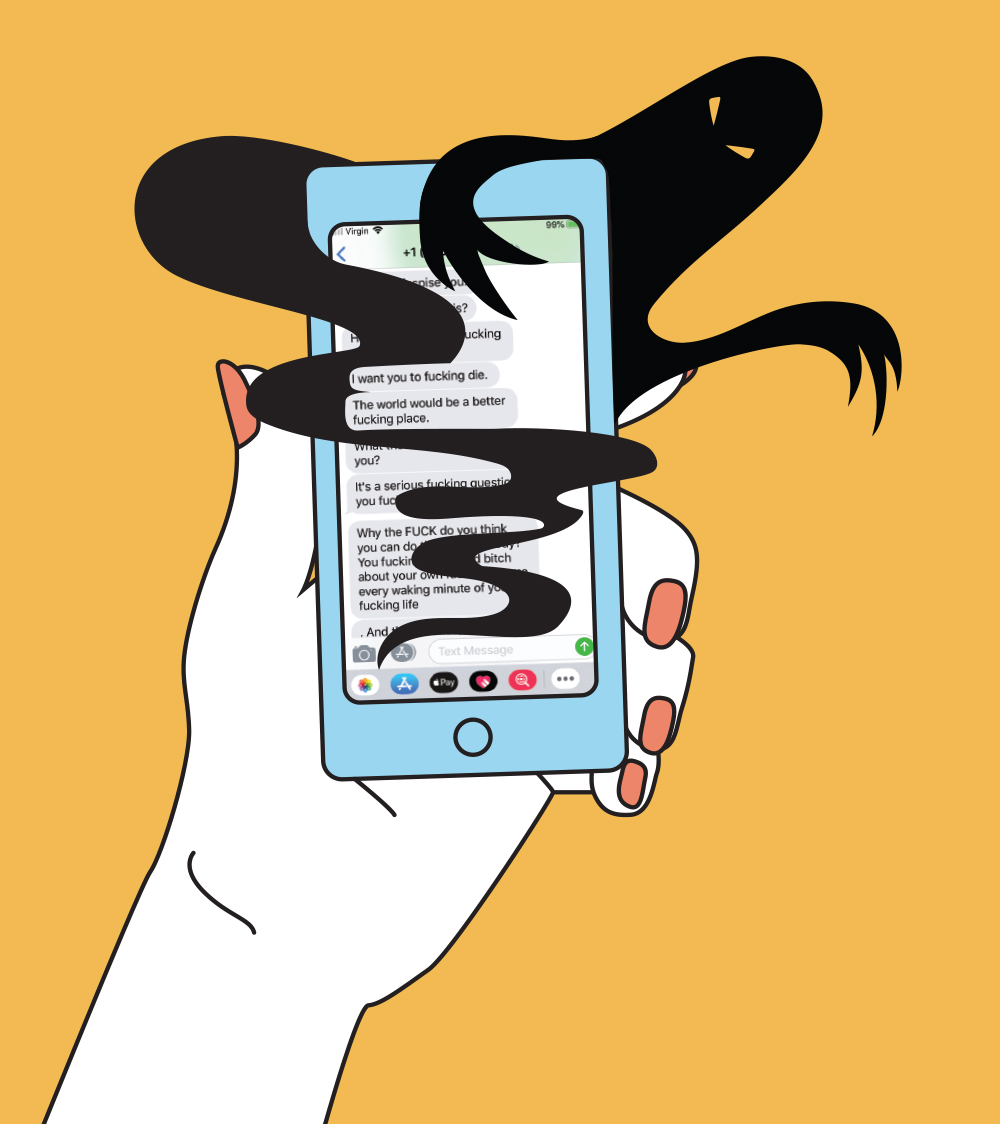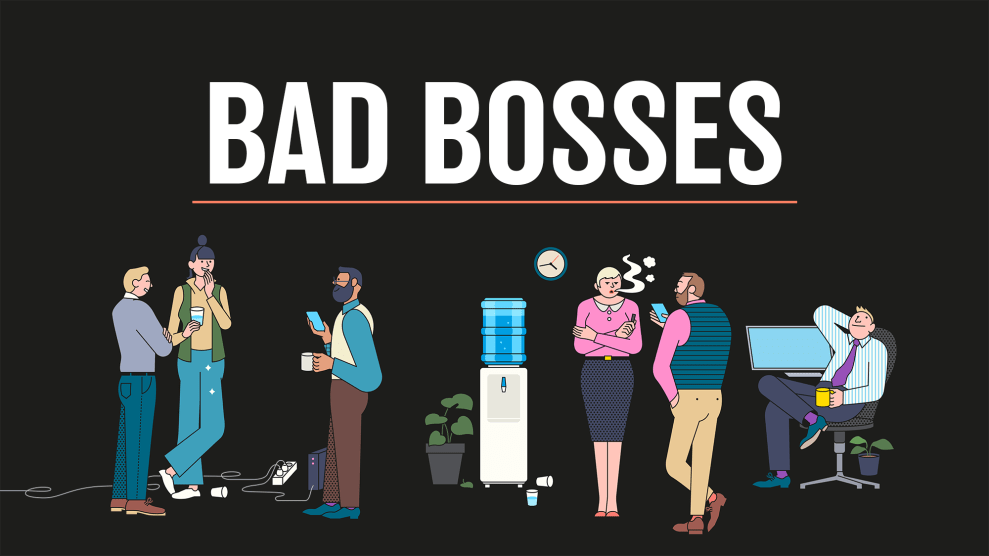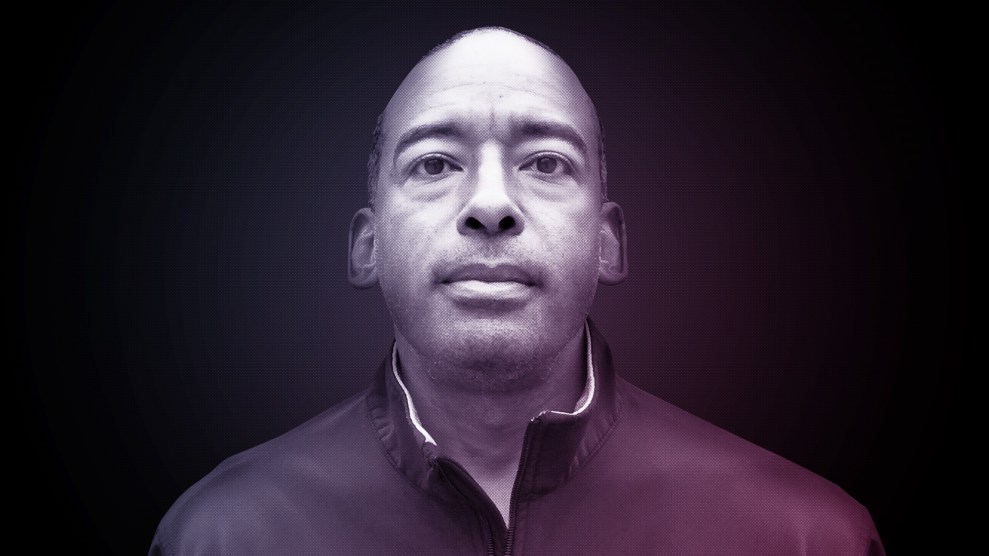In 2016, Kelley Smith was looking for a job when a former colleague connected her with Ed Damiano. A prominent professor and biomedical engineer at Boston University, Damiano co-founded a biotech company called Beta Bionics and he needed an assistant. Beta Bionics seemed like the ideal place to work: The company is aiming to develop the world’s first “bionic pancreas,” a device that promises to control blood sugar levels in people with diabetes better than anything else on the market. Damiano, a father of a child with Type 1 diabetes, has seen his work featured in outlets like Time, NPR, and the Boston Globe. And, as he told Smith when they initially spoke, the company’s mission is to change the world in a positive way. It isn’t like other corporations, she was told. People in the organization described Beta Bionics as a family.
This is the story of how that portrait fell apart for Smith, in her own words.
Below, Smith describes being sexually harassed by a co-worker, including verbal and psychological abuse, sexual propositions, and a violation of privacy that Smith feels hurt her ability to perform her job. It’s also, crucially, about the company’s response when she reported the abuse. It’s a story that mostly focuses on Smith’s more than two-and-a-half years as an employee, though the distressing dynamics she details here extended far past December 2018, when she left the company. This is not a story of a straightforward, singular episode, with a clear beginning and end; in fact, Smith and her former co-worker were in touch throughout 2019, during which they both repeatedly attempted to sever ties.
The former co-worker declined to speak with Mother Jones, though his lawyers deny “any suggestion” that he sexually harassed Smith. For his part, Damiano writes in a statement, “We took [Smith’s] allegations of sexual harassment very seriously and followed up with a thorough investigation…[which] uncovered the details of a consensual, though troubled, relationship…no evidence met the definition of harassment.”
Smith remembers her experience differently. She is sharing what happened to her in the hope, as she put it in one of our first conversations, that it will “do some good” for others in a similar position.
This interview has been edited and condensed for clarity. Where necessary, we’ve added annotations to offer additional context and comments from Damiano and the co-worker’s lawyers, which you can see by clicking on the highlighted yellow text. —Jackie Flynn Mogensen

Within the diabetic community and within Boston University, Ed is basically a rock star. This technology that came out of his lab and his research—it’s essentially supposed to be the world’s first bionic pancreas. It works with a continuous glucose monitor to function like a human pancreas. It’s very hands-off. It’s autonomous. Within the diabetic community, it’s enormous.
When Ed would give a lecture, people would want to talk to him for hours and hours afterward. There would be a line of people waiting to meet him, waiting to talk to him, waiting to see him, take pictures with him.
I had my interview with him, and I really felt like I would be an idiot if I passed up the opportunity to work there. It was the most money I’d ever made, working for an incredible company. I thought: This incredible person. He was so passionate about everything, and so warm and inviting. He really made it feel like I’d be entering into a true family dynamic. I felt like, Oh, my God, I’m so lucky. Like, how did this happen? About two weeks later, I was working for him.
Pretty early on, I started dating a co-worker. We kept it quiet because we both were feeling out the situation and just beginning to get to know each other. About a few months in, I started to pick up on things that were making me uncomfortable—he was constantly evaluating women and making comments about their bodies and their looks. I decided, Okay, I’m going to break up with this person.
He continued to contact me. It was a really small company, in a really small space, where we were all working insane hours. So there wasn’t a lot of time or room to get away from people. This co-worker started being really aggressive. I told him, I really need you to leave me alone, I really need you to not contact me unless it’s work-related because I’m just dealing with too much right now. And he wouldn’t do it.
That was at the end of 2017. I was already in a vulnerable place. I was dealing with some family issues. I almost feel like I gave off a sense of being weak. I was just so emotionally spent.
Then, we were about to go to a conference, and this co-worker said he thought that we should sleep together there. He texted me, “What if we just have sex during [the conference] and get along. I want to get along during [the conference] so it’s not a miserable experience for us both. And if you don’t hate me the whole time, then maybe I can actually lend a hand.” To me, he was suggesting, It’ll make your job easier. It’ll make my job easier. I said no.
During the conference, I asked to speak with him in an effort to set boundaries. During that conversation, he grabbed my arm so hard he left a bruise. [Editor’s note: Lawyers for the co-worker deny he ever touched Smith “in any violent manner.”]
From that point on, things just got worse. He stole keys from my office and showed up inside my apartment, unannounced. He threatened to steal my phone and demanded that I delete his text messages on the spot. He told me that he wanted me to die. He told me to kill myself. He told me I deserved to be abused by my father. He called me a bitch and a cunt.
Eventually, it got to the point where I said, what do I have to do to get you to leave me alone? He said to me, you have to fuck me for a week, during which time he would be allowed to do whatever he wanted to me. He said that he wanted me to feel used. I said no. But whatever I did wouldn’t work to get him to leave me alone.
I threatened to tell the company and he said, “No one will care.” He said, “They’ll see through you.”
It seems so obvious that I should have said something while I was at the company. I didn’t feel like I would be believed. I was one of the only women on our team at the company’s headquarters. I was a non-engineer. And so I just sat on everything, because I was afraid, and I didn’t want to jeopardize my position and my job.
Ed was really like a father figure and a mentor to me. I believed in him. And I felt like, if I could just keep this job, if I could just keep going, this was my saving grace, this was the thing that would allow me to support myself, I could do this. I thought, Eventually this co-worker will leave me alone. Eventually, he’ll move on.

One day, Ed took me aside. He was like, we’re going to let you go.
His reasoning was super vague: He said he knew I had some plans to eventually go on and do other things, so let’s just make it now. It shocked me. He told me not to worry, that they’d give me an incredible severance package. He said I’d be taken care of.
It wasn’t until I was no longer with the company, once I had gotten some distance, that I had the thought, What if they hire another woman? And what if he does this to them? I decided, I’m going to tell Ed the full story.
I really thought—being so naive—I would go to Ed and be like, “Here’s some evidence of an employee not being someone who’s respectful of women.” I thought maybe they’d keep him from conferences. I thought maybe they’d dock his pay. I really believed Ed would do the right thing.
Unfortunately, I was wrong.
When I left the meeting with Ed, he said they would investigate. He said they’d consult their lawyers. I was told I’d have to answer questions, show text messages, and provide a lot of evidence. I thought, Okay, the texts are so horrible, they’re so clear, this will be wrapped up really easily. I showed the company’s investigators the text messages, including an image of the bruise that he had left on my arm. They said they needed timestamps. They needed to see the texts before and after. They told me they’d have to do their own internal investigation. And they’d have to talk to him about everything. It dragged on for weeks.
In the end, they found nothing wrong.
When the investigators called me, they said I dated him, I knew what I was doing. We were equals. They determined he didn’t have more power than me. They said that this co-worker would go to sexual harassment training. And it was over.
I was upset. I’m pretty sure I hung up on them, and said something along the lines of, I cannot believe this is happening. I was furious.
Ed called me 24 hours later. He was on speakerphone with his wife. He said he needed to explain things to me. First of all, he said, he believed me. He said they knew he is a bad person. They knew that there is something wrong with him. They did this because they didn’t want him going to a new company with a fresh clean slate. The only reason they didn’t fire him is because they were going to “keep an eye on him.” They said they were going to try and help him become a better person.
They would meet up with me every month, and we would have breakfast together, Ed and his wife, and they would give me updates on this co-worker. They’d say how bad he is. Look at how he’s failing to improve.
When I talked to a lawyer recently, I realized they had kept me in check. And by doing that for enough time, they may have been trying to prevent me from doing anything legally against the company. The limitation for how long you can file a claim in Massachusetts is 300 days. They did this for roughly a year.
When I look back, I really believe that they knew what was going on with the co-worker. And in firing me, they were trying to protect themselves.

Beta Bionics portrays themselves as being really wholesome. They’ve even called themselves the David versus Goliath in the biomed tech world. Their rhetoric has always been, we want to get our technology out as quickly as possible to help as many people as possible. But the thing is, if they wanted to reach a wider audience, they could have released this technology for free.
There’s a foundation called Nightscout, formed by parents with kids that have Type 1 diabetes—just like Beta Bionics—and they offer free instructions on how to hack into glucose monitors. Basically, you can hack into them to create your own self-monitoring tracking system to make the devices work better for children. Beta Bionics’ algorithm could make it even better. There are children who die all the time because of incorrect dosing. They could have saved lives.
Instead, they’re choosing the route of a corporation, so they can potentially make millions of dollars. So now it’s in FDA trials. During the trials, you’re not supposed to be using the technology, but they are—for their own kids. Ed and other employees would openly talk about their kids being on the technology. They never even tried to hide it. It was always open knowledge. [Editor’s note: Damiano’s statement provides extensive answers to many of Mother Jones’ questions but doesn’t respond directly to the claim that his son participated. He writes: “We were aware there were instances in the past where Beta Bionics employees and their family members were using our technology outside of clinical trials. We are taking steps to address these instances, and to our knowledge, there are currently no employees, family members of employees, or individuals outside of a clinical trial that we have authorized to use the technology.”]

It’s been a few years since all this happened. I want to move on. But I realized, everyone has to find a way to heal. And one of the best ways to heal is to talk about the story, and to find a way to do some good from it.
If I could have power over my own narrative, and speak out, it might help to know I tried to help someone else in this position.
The other thing that’s stuck with me is when I said I was going to tell someone about the harassment, he said, “No one will care.” He has been right. I don’t want him to be right. I don’t want him to live in a world where he believes that because it’s true. I want him to live in a world where there’s accountability. And there’s only accountability if somebody speaks up. And if that has to be me, I’ll do it.

















